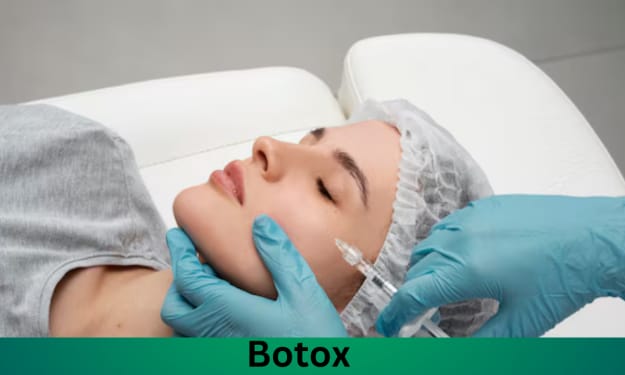Benefits of using hyaluronic acid for the skin
Skincare routine everyday

Hyaluronic acid is a popular ingredient in many skincare products, known for its hydrating and anti-aging benefits. It is a naturally occurring substance found in our bodies and is responsible for maintaining the skin's moisture levels. In this article, we will explore the benefits of using hyaluronic acid for the skin and discuss its potential disadvantages.
- Benefits of Hyaluronic Acid for Skin:
Hydrates the Skin: Hyaluronic acid is a humectant, which means it attracts water and helps to lock in moisture. When applied to the skin, it can help to hydrate and plump the skin, reducing the appearance of fine lines and wrinkles.
Improves Skin Texture: Hyaluronic acid can also improve the texture of the skin by helping to exfoliate dead skin cells and unclogging pores. This results in smoother, brighter, and more even-toned skin.
Reduces Inflammation: Hyaluronic acid has anti-inflammatory properties that can help to reduce redness and inflammation caused by skin conditions such as acne and rosacea.
Anti-Aging Benefits: As we age, our skin's natural hyaluronic acid levels decline, leading to dryness and wrinkles. By applying hyaluronic acid topically, we can help to boost our skin's hydration levels and reduce the appearance of fine lines and wrinkles.
Suitability for all skin types: Hyaluronic acid is a popular ingredient in many skincare products, known for its hydrating and anti-aging benefits. It is a naturally occurring substance found in our bodies and is responsible for maintaining the skin's moisture levels. In this article, we will explore the benefits of using hyaluronic acid for the skin and discuss its potential disadvantages.
- Benefits of Hyaluronic Acid for Skin:
Hydrates the Skin: Hyaluronic acid is a humectant, which means it attracts water and helps to lock in moisture. When applied to the skin, it can help to hydrate and plump the skin, reducing the appearance of fine lines and wrinkles.
Improves Skin Texture: Hyaluronic acid can also improve the texture of the skin by helping to exfoliate dead skin cells and unclogging pores. This results in smoother, brighter, and more even-toned skin.
Reduces Inflammation: Hyaluronic acid has anti-inflammatory properties that can help to reduce redness and inflammation caused by skin conditions such as acne and rosacea.
Anti-Aging Benefits: As we age, our skin's natural hyaluronic acid levels decline, leading to dryness and wrinkles. By applying hyaluronic acid topically, we can help to boost our skin's hydration levels and reduce the appearance of fine lines and wrinkles.
suitability for all skin types: Hyaluronic acid is suitable for all skin types, including sensitive and acne-prone skin. It is gentle and non-irritating, making it an excellent choice for those with sensitive skin.
- Disadvantages of Hyaluronic Acid for Skin:
Can Cause Dryness: Although hyaluronic acid is known for its hydrating benefits, it can sometimes have the opposite effect. In dry climates or low humidity environments, hyaluronic acid can draw moisture from the skin, leaving it even drier than before.
Not Effective in Deep Wrinkles: Hyaluronic acid is most effective in reducing the appearance of fine lines and wrinkles. However, it may not be as effective in deeper wrinkles or more severe signs of aging.
May Not Work for Everyone: Hyaluronic acid may not work for everyone, as its effectiveness can depend on various factors such as the skin's natural moisture levels, age, and environmental factors.
Expensive: suitability for all skin types;: High-quality hyaluronic acid products can be expensive, making it difficult for some to afford. However, there are more affordable options available that can still provide benefits for the skin.
Temporary Results: Hyaluronic acid is not a permanent solution for aging skin. It provides temporary results and requires consistent use to maintain its benefits.
- Conclusion:
Hyaluronic acid is an excellent ingredient for skincare, providing numerous benefits such as hydration, improved texture, anti-aging benefits, and suitability for all skin types. However, it is important to be aware of its potential disadvantages, including dryness, limited effectiveness in deep wrinkles, and the need for consistent use to maintain results. As with any skincare product, it is essential to do your research, consult a dermatologist, and patch test before use to avoid any adverse reactions. Overall, hyaluronic acid is a valuable addition to any skincare routine, providing hydration and anti-aging benefits to help achieve healthy, youthful-looking skin.
About the Creator
HEMA MALINI
"Wordsmith extraordinaire and content creator with a passion for storytelling and a commitment to delivering quality. Always striving to inform and inspire through the written word."
Enjoyed the story? Support the Creator.
Subscribe for free to receive all their stories in your feed. You could also pledge your support or give them a one-off tip, letting them know you appreciate their work.






Comments (1)
Hyaluronic acid sounds great for skin:)